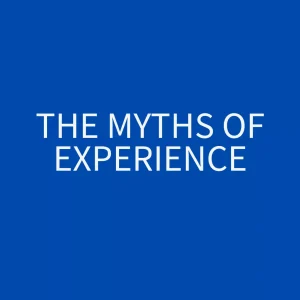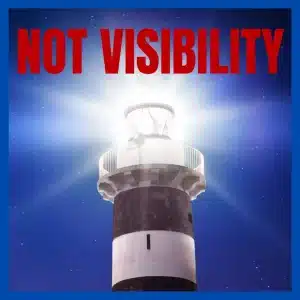Here’s a brutal truth about knowledge monetization: 95% of experts with incredible knowledge make less than $50,000 a year from what they know. Meanwhile, people with half their expertise are building million-dollar businesses.
The difference isn’t talent – it’s avoiding these five critical mistakes that keep brilliant minds broke.
Which one is costing you money?
Mistake #1: Thinking Knowledge is Enough
“You might have decades of insight, but if it’s not structured — it’s not sellable.”
This is the first knowledge monetization mistake.
Expertise isn’t enough. People don’t buy what you know — they buy what you can articulate clearly and deliver consistently.
“Knowledge is potential value. Prepared thought is actual value.”
What to do instead: Turn your experience into frameworks — not just ideas. Think: models, methods, templates, diagnostic tools.
Mistake #2: Selling Time
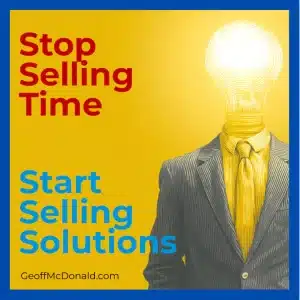
Most experts price their services based on what they think people will pay, not on the transformation they provide.
Here’s the reality – when someone hires you, they’re not buying your time, they’re buying your years of experience compressed into a solution.
I see consultants charging $100 an hour when they should be charging $1000 for a solution. The difference? Value-based pricing versus time-based pricing. Your decades of experience solving problems is worth far more than an hourly rate.
What to do instead: Stop thinking like an employee and start thinking like a problem-solver. Start to calculate what your solution is worth to your client by going deeper into your value proposition.
Mistake #3: The Generosity Trap

It’s The Generosity Trap – giving away your most valuable insights for free, thinking it will lead to paid work. But when people don’t pay you, they don’t value your insights. It can’t be valuable, because it’s free, right?
The solution isn’t to stop being helpful – it’s to be Strategically Helpful.
Give away the “why” and the “what” but charge for the “how.” Share insights that demonstrate your expertise but reserve the implementation roadmap for paying clients.
Your free content should create demand for your paid solutions, not replace them.
What to do instead: Create content that only talks about the Why and What. You can provide a general solution, but hang on to your detailed steps.
Mistake #4: Poor Positioning
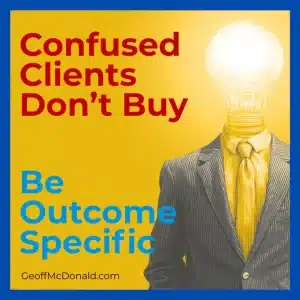
For effective knowledge monetization describe the outcome you deliver.
Instead of “I’m a productivity consultant,” try “I help executives reclaim 10 hours per week so they can focus on strategic growth.”
And instead of “I teach marketing,” try “I help coaches get 50 qualified leads per month without social media.”
What to do instead: This links back to Mistake #2. What’s the total solution you provide? Be specific. Define something you can measure. Read this: Create your Killer Client Value Statement in Three Steps
Mistake #5: Delaying the Build

“Most experts tell themselves, ‘I’ll package my knowledge when I’ve got more time.’”
That’s like a builder waiting for a sunny day to pour the foundation. It’s never coming.
And worse, your knowledge decays in value the longer it stays in your head.
According to Harvard Business Review, up to 60% of tacit knowledge is lost in executive transitions due to lack of documentation.
What to do instead: Start your knowledge monetization today. Codify one method. Name one framework. Build one offer. Don’t perfect, package.
The Good News
Which of these five mistakes is costing you money? Be honest. It’s your business, your life.
The good news? Once you fix them, your income can increase dramatically within months, not years.
Mastering knowledge monetization isn’t about having more expertise – it’s about positioning and packaging what you already know.
And remember, knowledge monetization is built on implementation, not just information.
You don’t need more experience. You need more design.
More on Knowledge Monetization
If you want more on knowledge monetization read these blog posts next:

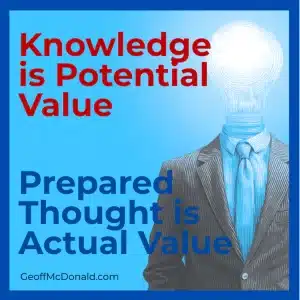 “You might have decades of insight, but if it’s not structured — it’s not sellable.”
“You might have decades of insight, but if it’s not structured — it’s not sellable.”
